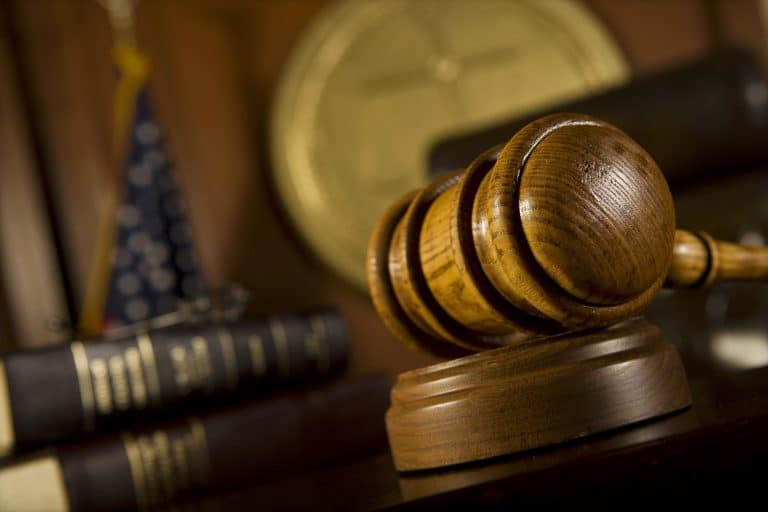
Among the dozens of U.S. Navy officers charged in connection with the “Fat Leonard” bribery and fraud scandal, Edmond Aruffo is unique — for a variety of reasons.
Unlike many of the other Navy officials tied to the $35 million fraud scheme, Aruffo was never accused of taking bribes of cash or prostitutes. And Aruffo’s charges stemmed not from his time while employed by the Navy, but rather when he went to work for the scheme’s mastermind, Malaysian defense contractor Leonard Glenn Francis, at Glenn Defense Marine Asia.
Aruffo, who retired from the Navy in 2007 as a lieutenant commander, was also among the first Navy officers charged in the case, and was the fourth to plead guilty, in July 2014. But his sentencing was repeatedly delayed over the past eight years — during which time he earned a law degree and wrote a book aimed at helping other law students pass the California bar exam — as he assisted prosecutors with their case.
On Wednesday, U.S. District Judge Barry “Ted” Moskowitz sentenced Aruffo to perform 850 hours of community service helping military veterans. He also sentenced him to three years of supervised release.
Moskowitz called the various prosecutions related to Francis “probably the most significant case prosecuted in” San Diego federal court and said Aruffo had provided the most significant government cooperation he’d seen in his 30 or so years as a federal judge and prosecutor.
Aruffo “went off the moral grid, but came in from the cold,” Moskowitz said, adding it was unnecessary to send Aruffo to prison after he had the case hanging over his head for so long.
Aruffo’s attorney, Gary Brucker, had asked that his client be sentenced to no additional prison time beyond the 83 days he spent in custody in 2014. Assistant U.S. Attorney Valerie Chu had initially requested Aruffo be sentenced to 15 months in prison and later asked for six months when the judge made clear he’d be giving a lesser sentence because of Aruffo’s cooperation.
Brucker said his client met with investigators roughly 40 times, including for several hours on the night in September 2013 when federal agents first knocked on his door.
Aruffo told the court he was “embarrassed and ashamed” by his actions, and that he owed his greatest apology to the Navy. He joined when he was 17 years old, he said, and he worked his way up over more than 21 years from a dishwasher on a submarine to a lieutenant commander by the time he retired.
The shape of Aruffo’s case had many parallels to Francis’ own criminal case. Both men pleaded guilty years ago, and both put off sentencing while helping prosecutors build their sprawling case against dozens of Navy officers. But those similar paths ended earlier this year.
While Aruffo testified for eight days during the only trial in the case, which ended with the convictions of four of the five Navy officers being tried, Francis never took the stand, despite prior expectations that he might be the prosecution’s star witness.
Francis fled the country in September just weeks before he was to learn his own fate. Francis now sits in Venezuelan custody, having been captured there while allegedly trying to travel to Russia. He has sought asylum in Venezuela, and the U.S. has been given a two-month deadline to seek his extradition.
Aruffo met Francis, nicknamed for his immense size, while he was serving as the operations officer of the Blue Ridge, the command ship of the Navy’s massive Seventh Fleet in the western Pacific.
According to court testimony and Aruffo’s sentencing memorandum, it was his job to arrange social events for senior officers, including events hosted by Francis.
Such dinners and parties were often where Francis charmed officers, recruiting them to his scheme, according to court records in the broader investigation. Francis bribed them for their influence within the Navy and in turn they helped steer lucrative contracts to his company, which provided various services to visiting Navy ships in ports he controlled. Francis then grossly overcharged for many of those services.
“Although Mr. Aruffo did not receive cash bribes or prostitutes from Mr. Francis like other defendants, he did accept discounted or free meals and hotels,” his attorney wrote in the sentencing document, noting that prosecutors did not charge Aruffo for receiving those benefits.
That was Aruffo’s “first mistake,” according to his attorney. His second mistake, the attorney wrote, occurred in 2009, when Aruffo accepted Francis’ offer to become GDMA’s county manager for Japan.
“He unwittingly joined an ongoing conspiracy to defraud the Navy,” Brucker wrote. “Once he learned of the fraud, Mr. Aruffo decided to leave the company on his own accord and did so, just not soon enough. He should have quit immediately, and his failure to do so is his biggest regret.”
The attorney wrote that Aruffo received a fixed salary and never personally benefited from the fraud.
Moskowitz said he planned to order Aruffo to pay restitution — prosecutors asked for more than $2 million — but the sides could not settle on an amount Wednesday and put off until a later date a hearing to determine what he should pay.
___
© 2022 The San Diego Union-Tribune
Distributed by Tribune Content Agency, LLC
0 comments :
Post a Comment